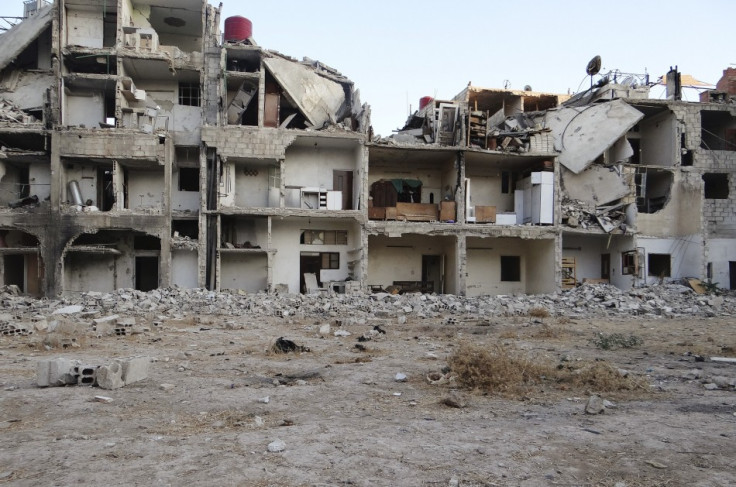Syria: Assad Government to Grant UN Access to 'Chemical Attack' Site

The Syrian government is to allow UN weapons inspectors to investigate the area in Damascus where an alleged chemical weapons attack killed hundreds of civilians on Wednesday.
An announcement by the Syrian foreign ministry said that inspectors would be allowed to "investigate allegations of chemical weapons use in Damascus province" after a deal was concluded on Sunday with the UN's disarmament chief, Angela Kane.
The ministry said that the two parties were working to agree a date for the visit.
Experts say that neurotoxins such as Sarin lose their potency after about 30 minutes, and that traces of the nerve agent are almost impossible to detect a week after use. The alleged attack took place five days ago.
The announcement comes as a senior US official stated that the Obama administration had "very little doubt" that the Syrian government was responsible for the strike.
The official added that US intelligence agencies based their assessment on "the reported number of victims, reported symptoms of those who were killed or injured, witness accounts, and other facts gathered by open sources".
The Syrian government has not previously allowed inspectors access to the scene of the attack in the east of the city, and claims the attacks were carried out by rebel terrorists.
On Saturday, state Syrian media claimed that soldiers had discovered chemical agents in a tunnel in the Jobar area of the city retaken from rebels, and that soldiers were even attacked with poison gas.
The charity Medecins Sans Frontieres has confirmed that its medics treated about 3,600 people suffering "neurotoxic symptoms" on Wednesday, with 355 dying. The charity said it was not in a position to confirm if the symptoms were caused by chemical weapons, but said they included convulsions, breathing difficulties and pin-point pupils, and the majority of patients were admitted in a three-hour period.
Following a telephone conversation last night, president Barack Obama and prime minister David Cameron pledged a "serious reponse" if Bashar al-Assad's forces were found to be responsible for the attack.
But in an interview with Lebanese TV, Syria's information minister Omran Zoabi warned of the consequences of US military intervention in the conflict.
"The military intervention in Syria has proved to be a weak case because Syria is still a strong state. It has institutions, an army," he said. "It has friends and allies in the region.
"If the US leads a military intervention this will have dangerous consequences, it will bring chaos and the region will burn."
Echoing Obama's statement that the use of chemical weapons in the conflict marked a "red line" that would alter US policy if crossed, the deputy chief of staff of Iran's armed forces, Gen Massoud Jazayeri, warned of "severe consequences" if the US crossed a "red line" in the conflict.
Hama Governor Murdered
Elsewhere in Syria, the governor of the central province of Hama was killed by a car bomb on Sunday, Syrian state TV reported.
Anas Abdul Razaak Naem was assassinated in the Jarajima neighbourhood of the provincial capital of Hama.
© Copyright IBTimes 2025. All rights reserved.





















